Psychiatric Services for Teens and Adults in Florida
Our psychiatric services for teens and adults in Florida are designed to support a wide range of mental health needs…
Suncoast Psychiatry offers psychiatric services for teens and adults in Florida, including psychiatric and bariatric evaluations, medication management, treatment referrals, and personalized mental health support. Located in Lutz, we serve Tampa, Brandon, Citrus Park, and Lake Magdalene with compassionate care for individuals aged 12 and older.
Whether symptoms are acute or more complex, our team takes the time to understand your concerns and tailor treatment plans to your goals and priorities. At Suncoast Psychiatry, we offer a welcoming and supportive environment where you can openly address the challenges that matter most to you and build a strategy for long-term well-being.
When mental or physical health issues interfere with your daily life, it can be hard to know where to turn. Suncoast Psychiatry is here to offer compassionate, comprehensive care designed to meet your needs. To learn more about how we can help you better understand your health and move toward a happier, healthier life, please contact us at (813) 839-7390.
Office Hours:
Monday – Thursday: 8:30 a.m. – 5:00 p.m.
Friday: 8:30 a.m. – 4:00 p.m.
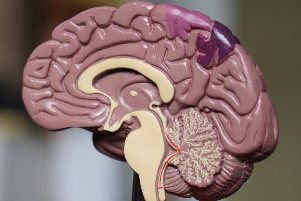
Psychiatric Evaluations for Teens and Adults in Florida
At Suncoast Psychiatry, we offer comprehensive psychiatric evaluations as part of our expert psychiatric services for teens and adults in Florida. These evaluations help diagnose mental health conditions by assessing memory, thinking patterns, emotions, and behaviors. Common diagnoses may include depression, anxiety, bipolar disorder, schizophrenia, and substance use disorders. A psychiatric evaluation is often the first step in developing a personalized treatment plan that supports long-term mental wellness.
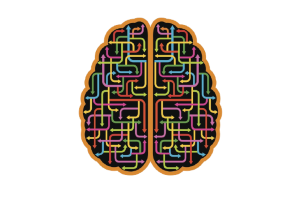
ADHD Diagnostic Evaluations for Adults in Florida
A licensed mental health professional or physician should perform your ADHD diagnostic evaluation. At Suncoast Psychiatry, our team specializes in psychiatric services for teens and adults across Florida, offering thorough ADHD assessments. We deliver accurate diagnoses to help you take control of your symptoms, sharpen your focus, boost productivity, and improve your overall mental well-being. Take the first step—schedule your ADHD evaluation with Suncoast Psychiatry today.

Medication Management
Medication management is a specialized program designed to help adults safely and effectively manage their prescriptions. At Suncoast Psychiatry, our medication management services support individuals in taking their medications on time, every time, and minimizing the risks of missed doses or incorrect administration. Our experienced mental health professionals work closely with you to ensure your treatment plan is safe, effective, and tailored to your unique needs. Improve your health and well-being with expert medication management in Florida.
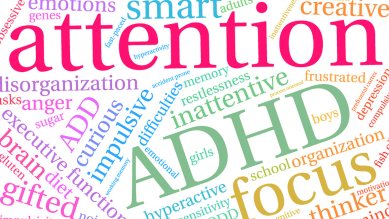
What is ADD / ADHD?
ADHD, or Attention Deficit Hyperactivity Disorder, is a neurodevelopmental condition characterized by symptoms such as inattentiveness, impulsivity, and hyperactivity. While symptoms can vary from person to person, common signs in adults include difficulty managing time, staying organized, setting and achieving goals, and maintaining consistent employment. Previously known as ADD (Attention Deficit Disorder), the term ADHD is now used for both children and adults. Although symptoms always begin in childhood, many individuals continue to experience challenges into adulthood. If you suspect you or a loved one may have ADHD, a professional evaluation can help you understand your symptoms and find effective treatment options.
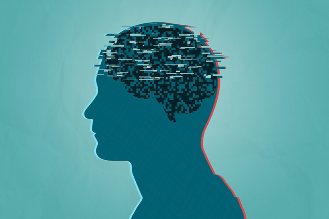
PTSD (Post Traumatic Stress Disorder)
Posttraumatic Stress Disorder (PTSD) is a mental health condition that can develop in people who have experienced or witnessed a traumatic event. Traumatic events may include natural disasters, serious accidents, terrorist acts, war or combat, rape, or being threatened with death, sexual assault, or serious injury. Individuals with PTSD may experience symptoms such as flashbacks, nightmares, severe anxiety, and uncontrollable thoughts about the event. If you or someone you know is struggling with the effects of trauma, professional help is available. Early diagnosis and treatment can significantly improve quality of life and support recovery.
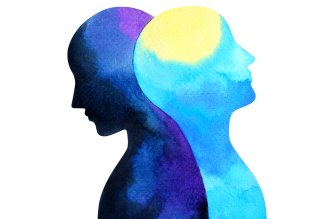
Bipolar Disorders
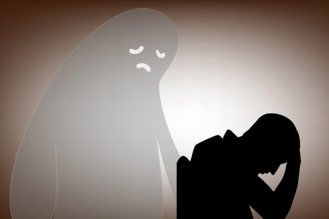
Major Depressive Disorders
Depression is a common mental health disorder characterized by a persistently depressed mood or a loss of interest in daily activities, leading to significant impairment in everyday life. Symptoms may include feelings of sadness, hopelessness, fatigue, difficulty concentrating, and changes in sleep or appetite. The causes of depression are complex and may involve a combination of biological, psychological, and social factors. Recent research indicates that these influences can lead to changes in brain function, including altered activity in certain neural circuits. Early diagnosis and effective treatment can help manage symptoms and improve quality of life for individuals living with depression.

Substance Abuse and Alcohol Abuse
Substance abuse and addiction are closely related but distinct mental health conditions. The term “substance abuse” refers to the harmful or risky use of legal or illegal substances, and many people with these problems can quit or change their behavior with support. In contrast, addiction is a chronic disease that makes it extremely difficult to stop using a substance, even when it leads to serious health or life consequences. Both prescription medications and illicit drugs contain chemicals that can change how your brain and body function, resulting in physical and psychological dependence. Recognizing the difference between substance abuse and addiction is an important first step toward finding effective treatment and lasting recovery.

Suboxone treatment for opiate abuse and dependence and Alcohol Abuse and dependence
At Suncoast Psychiatry, we provide compassionate support and effective treatment for individuals struggling with opiate or alcohol addiction. Our specialized Suboxone treatment program is designed to help adults overcome substance dependence, reduce cravings, and support long-term recovery. If you or a loved one is seeking help for opioid or alcohol abuse, our experienced team is here to guide you toward a healthier, substance-free life. Contact us today to learn more about our Suboxone treatment options and start your journey to recovery.
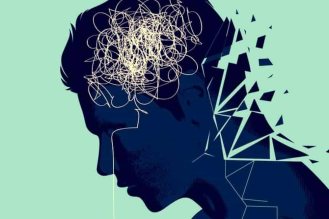
Anxiety Disorders
Anxiety disorders are a group of mental health conditions characterized by excessive fear, worry, or nervousness that can interfere with daily life. Common types of anxiety disorders include Generalized Anxiety Disorder (GAD), panic disorder and panic attacks, agoraphobia, social anxiety disorder, selective mutism, separation anxiety disorder, and specific phobias. Each type of anxiety disorder has unique symptoms, but all can significantly impact emotional well-being and quality of life. If you or a loved one is experiencing persistent anxiety or fear, professional evaluation and treatment can help manage symptoms and improve overall mental health.

Panic Attacks
A panic attack is a sudden episode of intense fear or discomfort that causes severe physical symptoms, even when there is no real danger or obvious trigger. Common symptoms include a racing heart, shortness of breath, chest pain, dizziness, and a sense of losing control. Panic attacks can be extremely frightening—many people feel as if they are having a heart attack or are in serious danger. While some individuals may experience only one or two panic attacks during stressful times, others may have recurrent, unexpected episodes. If you experience frequent panic attacks and live in constant fear of another, you may have panic disorder. Professional evaluation and treatment can help manage symptoms and improve your quality of life.

Phobias
A phobia is a type of anxiety disorder characterized by a persistent and excessive fear of a specific object or situation. This intense fear often leads to rapid onset of anxiety symptoms and typically lasts for more than six months. Common phobias include fear of heights, flying, certain animals, or social situations. If you are struggling with a phobia and want to overcome or reduce your fear, professional support is available. At Suncoast Psychiatry, we offer effective treatment options to help you manage and minimize your phobia, so you can regain control and improve your quality of life.

Agoraphobias
Agoraphobia is an anxiety disorder that often develops after experiencing one or more panic attacks. Individuals with agoraphobia may feel intense fear or avoid places and situations where they believe escape might be difficult or help unavailable, leading to feelings of panic, entrapment, helplessness, or embarrassment. Common symptoms include avoiding crowded areas, public transportation, or unfamiliar environments. Effective treatments for agoraphobia include talk therapy (such as cognitive behavioral therapy) and medication. If agoraphobia is affecting your daily life, reaching out to a licensed mental health provider can be a crucial step toward regaining confidence and returning to a more normal, fulfilling life.

Obsessive Compulsive Disorders (OCD)
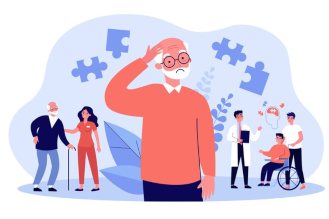
Dementias (Alzheimer)
Dementia is a progressive neurological disorder in which brain cell connections and the cells themselves degenerate and die, leading to a gradual decline in memory and other important mental functions. The most common symptoms include memory loss, confusion, and difficulty with thinking, problem-solving, and language. While there is currently no cure for dementia, certain medications and management strategies can help temporarily improve symptoms and enhance quality of life. Early diagnosis and professional support are essential for managing dementia and supporting both individuals and their families.
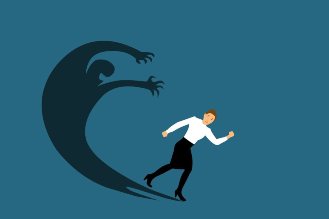
Schizophrenias
The exact cause of schizophrenia isn’t known, but a combination of genetics, environment, and altered brain chemistry and structure may play a role.
Schizophrenia is characterized by thoughts or experiences that seem out of touch with reality, disorganized speech or behavior, and decreased participation in daily activities. Difficulty with concentration and memory may also be present.
Treatment is usually lifelong and often involves a combination of medications, psychotherapy, and coordinated specialty care services.
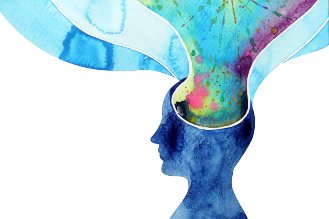
Schizo-affective Disorders
Schizoaffective disorder is a combination of symptoms of schizophrenia and mood disorder, such as depression or bipolar disorder. Symptoms may occur at the same time or at different times. Cycles of severe symptoms are often followed by periods of improvement. Symptoms may include delusions, hallucinations, depressed episodes, and manic periods of high energy. People with this disorder generally do best with a combination of medications and counseling.
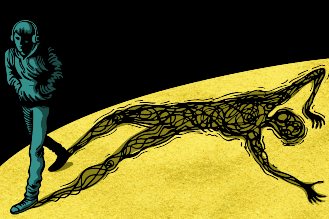
Psychosis
Psychosis may occur as a result of a psychiatric illness like schizophrenia. In other instances, it may be caused by a health condition, medications, or drug use.
Possible symptoms include delusions, hallucinations, talking incoherently, and agitation. The person with the condition usually isn’t aware of his or her behavior. Treatment may include medication and talk therapy.

Weight Loss
If you’ve experienced cycles of yo-yo dieting and find it difficult to achieve lasting weight loss, you’re not alone. At Suncoast Psychiatry, we help adults uncover the underlying causes of weight fluctuations and develop personalized, sustainable plans for healthy weight management. Our experienced team is dedicated to supporting you on your journey to long-term success and improved well-being. Take the first step toward breaking the cycle—contact us today to learn more about our weight loss support services. Details about weight loss
